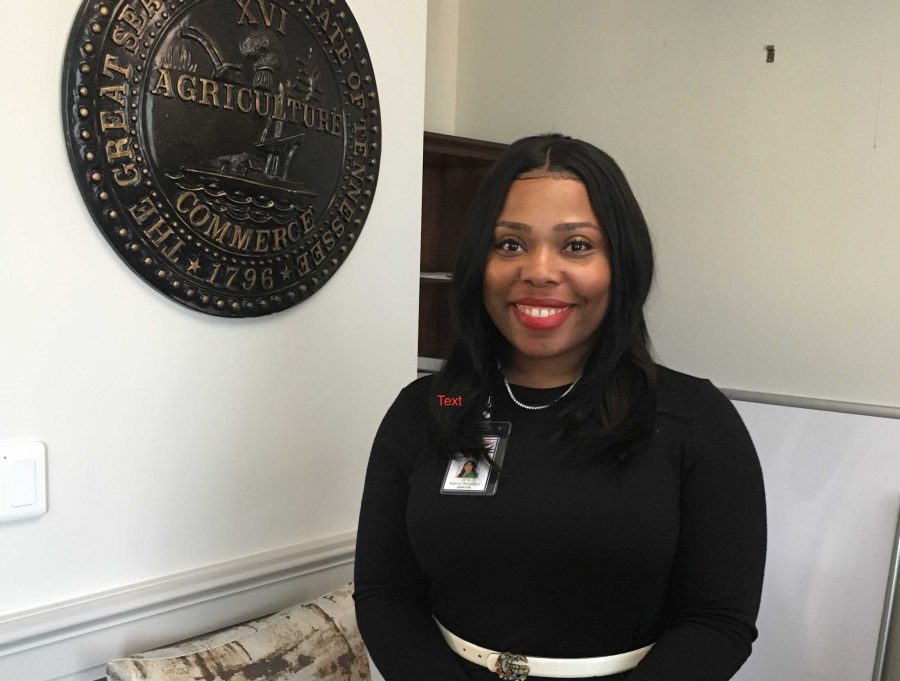Senator Katrina Robinson has had an all but ordinary path to political activism and leadership. Born in Memphis, she became a teen mother shortly after heading off to college. She went on to raise two children as a single mother while earning a degree in nursing and starting the Healthcare Institute LLC, a Memphis school that trains students for careers in healthcare. In 2018, she ran in her first legislative election and was elected to represent Shelby County in the Tennessee state Senate. One of five Democrats, eight women, and three African American women out of 33 senators, she has committed herself to championing education, healthcare, and economic development. She sat down with the Hustler to discuss her path to state government, the trials of campaigning, and the progressive issues most important to her.
Vanderbilt Hustler: So, how are you finding your first few weeks in the Senate?
Sen. Katrina Robinson: It’s going good. We’re working really hard trying to introduce legislation that’s impactful, that matters, and takes into account my everyday constituents who have these issues. The first couple of weeks have been great, we’ve introduced quite a few bills, and have been meeting with stakeholders and those we have an interest in to get those passed.
VH: How did you end up getting involved in government?
KR: I own a school [The Healthcare Institute], and the reason why I started the school was to create alternative secondary education opportunities for people who normally wouldn’t get into college–so, people who don’t make the 19 on the ACT, who don’t graduate high school with a traditional diploma. In doing that I started to realize that there were other issues with homelessness, with literacy, even issues with taking care of grandparents, and I wanted to get more involved with creating resources for that. That’s how I ended up in communication with our state legislators, and I decided that I wanted to go ahead and run so I could take an active role in providing those resources to the folks that I serve every day.
VH: What was campaigning like?
KR: It was hard. I woke up in the morning at about 6 o’clock and I was literally back-to-back in meetings and events until midnight. Every day for a whole year, I didn’t do anything but campaign. So it was very, very hard work but it was very rewarding, and it was eye-opening to see more and more issues that you never even knew existed through meeting people that you never even thought about as part of the constituency.
The most enjoyable part was getting people involved who had no interest before. In doing research to kind of formulate my strategy, we found that we had about 14, 15 thousand people that traditionally came out to vote in that particular race. So I took the stance that I wanted to talk to everybody, whether they were voters who voted every time or who had never voted before. We ended up with about 21,000 people coming out to vote, and a lot of them were first-time voters. I got my kids involved; my son turned 18 this year and he came back from Morehouse to vote for me in his first election. So hopefully that translates to more and more participation in elections as we go forward on the statewide level, even federally. We’ve got a lot of opportunities to get people galvanized.
VH: What are you taking with you from your campaign to your work as a Senator?
KR: My campaign is actually my guiding principle for what legislation I carry this session. As senators, we don’t have a cap on the number of bills we can introduce, but I want to stay close to my campaign platform of education, economic development, and healthcare. So I would be open to introducing any legislation that has to do with those three things. If it’s a little bit off that path, I probably won’t entertain it in this session. That’s because I have double duty: I have to make sure that I deliver on my promises, but I also have to learn what I’m doing, and learn people, and build relationships. I tell my kids, my job is to have an opinion, but it’s also to get people to have the same opinion, and that’s the hardest part. So that’s what I have to learn how to do this session, and then next session I’ll get better and better and better.
VH: How do you get your ideas for new legislation?
KR: Most of my bills are from personal experience, to be honest with you… I have relatives who are incarcerated, and I talk to them about different issues that they have going on. It comes from what I’ve experienced as a parent, as a business owner, as an educator, but also from constituent issues. It comes with working with Shelby county government too.
VH: You’re among a minority of female senators in Tennessee. How does that inform your political decisions?
KR: We have 33 senators, and there are eight women here. So we have a responsibility to inject into the conversation a woman’s perspective. Though we may be on different sides of the aisle, we’re all women, and we have dealt with issues as women whether it’s from being a mother, being a woman in the workplace, a minority in the workplace. We were elected to advocate for everybody whether they’re a woman or a man, but if it’s a woman’s right issue then I expect a woman to speak up. I’m new, so this is my first term, but I do anticipate there will be a little bit of a gap in explaining from a woman’s perspective to a man’s perspective. And that’s just in life, period. Men, sometimes they don’t get women’s issues, and it’s our responsibility to educate them as best as we can.
VH: You’re also one of five democrats in the Tennessee Senate right now; the “Fighting Five.” Do you feel that you and the others have a responsibility to make Tennessee more progressive?
KR: I do, but everyone has a role that they play. Our democratic caucus is a little different this year. There are three newcomers, which will be me, Senator [Raumesh] Akbari, and Senator [Brenda] Gilmore. Those three actually happen to be African American women, coincidentally, it’s the first time this has happened in the state senate. And so you will see a lot more progressive issues being championed by us, because it is our responsibility. Sometimes conservatives will not push legislation that affects the everyday, middle class, working family, single moms, recent college grads with student loan debt, you won’t see a lot of that form the conservative side, and so it is our issue and our position as democratic senators to champion those issues.



